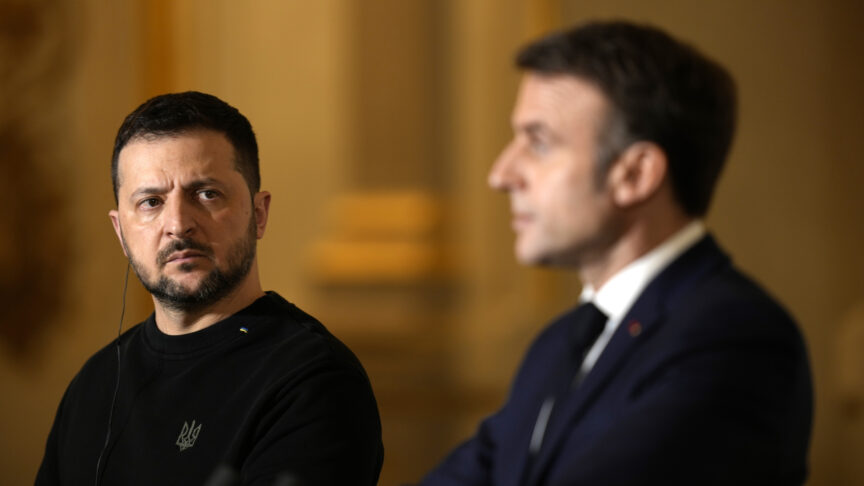A very American crisis: Why Trump is still NATO’s biggest problem
To all appearances, Macron and Erdogan are NATO’s latest troublemakers. But it is US indifference that enables their antics.
Another NATO summit will unfurl its many flags this coming week in London. And for the first time since Donald Trump took office, US promoters of the transatlantic alliance can feel slightly upbeat. The reason is not because the summit looks likely to achieve any sort of success. On the contrary, expectations are so low that, defying the rule of semantics, NATO’s brain trust renamed it a “leaders meeting”. Alas, regardless of that linguistic sleight of hand, the meeting seems like a train wreck in the making. No, the reason for the relative cheer is that, for once, Trump and the United States do not seem to be the source of the problems.
Standing in for Trump in the role of NATO-basher is the very capable duo of Emmanuel Macron and Recep Tayyip Erdogan. Macron has ripped into the alliance, calling it “brain-dead” for its unwillingness to confront its problems, criticising its excessive focus on Russia, and lambasting Turkey for demanding NATO solidarity even as it invades Syria in defiance of its NATO partners. Erdogan, adopting the rhetorical stylings of the schoolyard, responded that it is in fact Macron who is brain-dead and threatened to hold up NATO planning for the defence of the Baltic states and Poland unless the alliance backs Ankara’s stance on Syria.
This type of NATO crisis is not good, of course but, from an American perspective, it at least represents familiar ground. It is distant from the terra incognita of a US president threatening to withdraw from NATO or reducing the US role in Europe to a geopolitical protection racket. Instead, this summit features what looks like yet another example of NATO’s long series of crises of solidarity. Such crises often feature a petulant French president with a domestic political incentive to demonstrate independence from the US (see, for example, the French withdrawal from the NATO military structure in 1966) or a defiant Turkey more focused on its regional struggles than the big picture of defending the alliance (see, for example, the Turkish invasion of Cyprus in 1974).
Familiar territory means the US has a familiar set of responses. Washington policymakers are taught early, probably at their father’s knee, that leadership of a great alliance require great responsibility and great maturity of purpose. When those that follow step out of line, they must be reminded of what America and the Atlantic alliance has meant to them. Accordingly, the secretary of state, Mike Pompeo, responded to Macron’s remarks by noting gravely that “NATO remains an important, critical, perhaps historically, one of the most critical strategic partnerships in all of recorded history.” Reining in Turkey will be more difficult, but the Trump administration is, at the insistence of Congress, preparing a slew of sanctions under the Countering America’s Adversaries Through Sanctions Act to punish Turkey for its decision to buy Russian S-400 anti-aircraft missiles.
Both Macron and Erdogan are in fact fashioning responses to the severe damage Trump has already done
Underneath all of this is a common assumption that, because NATO has survived these types of crisis so many times in the past, it will survive the current one. And if France and Turkey were the only problems, that might in fact be right, despite the very severe tests that their respective visions pose for the alliance. But, despite the surface similarities, the current crisis is not French or Turkish in its origins. Even if Trump has not participated in the recent flap between France and Turkey, both Macron and Erdogan are in fact fashioning responses to the severe damage that he has already done. Macron sees an American ally that is “turning his back on us” and a Europe that refuses to wake up to the change in the US. Erdogan sees an American president that he can easily manipulate and who does not even consult with NATO allies when he makes a deal with Turkey to countenance an invasion of northern Syria.
This alliance crisis is thus an American crisis, which is something wholly new. The alliance’s anchor, its central player, no longer believes in it enough to pay the diplomatic and military costs necessary to sustain it through yet another shaky patch with France or Turkey. Perhaps Trump will not spoil this summit through some errant tweet or off-the-cuff decision to cede Estonia to Russia. But, regardless, he has caused NATO’s coming train wreck. An American NATO crisis requires a new type of response. If the alliance is to emerge from its coma, it requires a new type of bargain that can compensate for American indifference with both greater European contributions and greater European authority, as Macron advocates. It also requires an alliance that can find a place for a Turkey that will not share in the common purpose of NATO as it once did, but that also will not drift into some Russian or Chinese orbit.
This is a difficult bargain to find. It seems beyond the capacities of the current US president to chart a path toward such a diplomatic outcome. So, for now, we will just have to rely on Macron and Erdogan to keep reminding us that the old NATO bargain is no longer on offer.
The European Council on Foreign Relations does not take collective positions. ECFR publications only represent the views of their individual authors.


